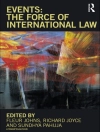Direct democracy makes you richer. Research shows that the average citizen earns nearly a $1000 for every referendum held, and that a strong correlation exists between the frequency of referendums and a GDP per capita. Referendums can also improve the quality of democracy. So why don’t we see more? Drawing on a three decades of research, Qvortrup presents a definitive statement on the benefits and history referendums, including examples of how this instrument of democracy has been both utilised and abused. The book outlines the history of referendums, explains when politicians have submitted issues to the voters, why these votes have been won or lost – and ultimately why it matters. Uniquely, the book also examines the role of social media in referendum campaigns and make suggestions for improving the process of direct democracy Written in a lucid style by one of the world’s leading experts on referendums,
Democracy on demand is a timely reminder of the importance of democracy in our politics, offering new insights into how direct democracy can both improve our lives and at the same time strengthen our societies.
Jadual kandungan
Introduction: the spectre of direct democracy Part I: Philosophy 1 The ideal of on demand direct democracy Part II: Practice 2 A brief history of the practice and consequences of referendums 3 Referendums, nationalism and separatism Part III: Regulation 4 The regulation of referendums: campaign spending Part IV: Improving direct democracy 5 Referendums and deliberative democracy 6 The recall as a mechanism for increasing accountability: an American case study 7 Citizen-initiated referendums: an empirical assessment Conclusion: bringing it all back home Index
Mengenai Pengarang
Professor Matt Qvortrup is Chair of Politics at The Robert Gordon University, Aberdeen and an adjunct Professor of Political Science at the University of New South Wales, Sydney












